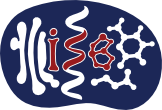Gary EN, Tursi NJ, Warner B, Parzych EM, Ali AR, Frase D, Moffat E, Embury-Hyatt C, Smith TRF, Broderick KE, Humeau L, Kobasa D, Patel A, Kulp DW, Weiner DB. Mucosal chemokine adjuvant enhances synDNA vaccine-mediated responses to SARS-CoV-2 and provides heterologous protection in vivo. Cell Rep Med. 2022 Jul 19;3(7):100693. doi: 10.1016/j.xcrm.2022.100693. Epub 2022 Jun 28. PMID: 35839767; PMCID: PMC9237025.
Abstract
The global coronavirus disease 2019 (COVID-19) pandemic has claimed more than 5 million lives. Emerging variants of concern (VOCs) continually challenge viral control. Directing vaccine-induced humoral and cell-mediated responses to mucosal surfaces may enhance vaccine efficacy. Here we investigate the immunogenicity and protective efficacy of optimized synthetic DNA plasmids encoding wild-type severe acute respiratory syndrome coronavirus 2 (SARS-CoV-2) spike protein (pS) co-formulated with the plasmid-encoded mucosal chemokine cutaneous T cell-attracting chemokine (pCTACK; CCL27). pCTACK-co-immunized animals exhibit increased spike-specific antibodies at the mucosal surface and increased frequencies of interferon gamma (IFNγ)+ CD8+ T cells in the respiratory mucosa. pCTACK co-immunization confers 100% protection from heterologous Delta VOC challenge. This study shows that mucosal chemokine adjuvants can direct vaccine-induced responses to specific immunological sites and have significant effects on heterologous challenge. Further study of this unique chemokine-adjuvanted vaccine approach in the context of SARS-CoV-2 vaccines is likely important.

